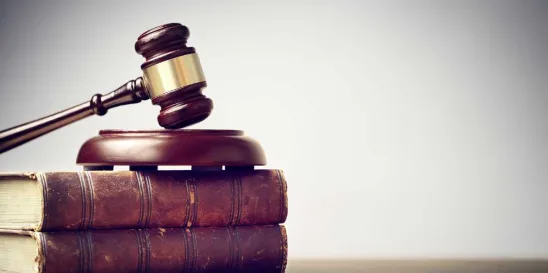On December 1, 2023, Federal Rule of Evidence (“FRE”) 702 will be amended, following the Supreme Court’s adoption of the amendment earlier this year. FRE 702 governs the admission of expert testimony in the federal courts, and has been the subject of much case law interpreting it already. Understanding the changes to FRE 702, and the impetus behind those changes, will be critical for litigants in federal court to ensure that the expert testimony they present in support of their claims or defenses remains admissible.
As adopted by the Supreme Court and submitted to Congress, the new FRE 702 will read as follows (language to be added is underlined, while language to be deleted is crossed out):
Rule 702. Testimony by Expert Witness
A witness who is qualified as an expert by knowledge, skill, experience, training, or education may testify in the form of an opinion or otherwise if the proponent demonstrates to the court that it is more likely than not that:
(a) the expert’s scientific, technical, or other specialized knowledge will help the trier of fact to understand the evidence or to determine a fact in issue;
(b) the testimony is based on sufficient facts or data;
(c) the testimony is the product of reliable principles and methods; and
(d) the expert has reliably applied expert’s opinion reflects a reliable application of the principles and methods to the facts of the case.
While the changes to FRE 702 do not appear extensive, the Report and Note of the Advisory Committee on Evidence Rules (“Committee”) are clear that the changes are intended to cure what the Committee perceived to be a widespread, incorrect interpretation of the current rule by many courts:
[T]he Committee resolved to respond to the fact that many courts have declared that the reliability requirements set forth in Rule 702(b) and (d)—that the expert has relied on sufficient facts or data and has reliably applied a reliable methodology—are questions of weight and not admissibility, and more broadly that expert testimony is presumed to be admissible. These statements misstate Rule 702, because its admissibility requirements must be established to a court by a preponderance of the evidence.
Committee Report at 6 (emphasis added).
The Committee Note clarifies that the amendment to the rule does not impose any new, specific procedures for a court considering whether expert testimony is admissible, and does not require courts to “nitpick an expert’s opinion in order to reach a perfect expression of what the basis and methodology can support.” Practically speaking, however, it appears that the Committee intends the amendment to place more responsibility on judges to ensure that expert testimony is sufficiently backed up by facts and data and by a reliable methodology, before allowing that testimony to be presented to a jury. The Committee Note specifically references the importance of “judicial gatekeeping,” noting that jurors may not have the “specialized knowledge” necessary to meaningfully evaluate whether an expert’s methodology is reliable and sufficiently supported.
In addition, the Committee Note explains that “[t]he amendment is especially pertinent to the testimony of forensic experts in both criminal and civil cases.” It also cautions against experts making assertions of absolute (100%) certainty (or even assertions to a reasonable degree of certainty) if the expert’s methodology is “subjective and thus potentially subject to error.” Litigants and their experts should be cognizant of this commentary, as it is possible courts may rely on it when interpreting the amended FRE 702.
One final aspect of the amendment to note is that while the amended FRE 702 takes effect on December 1, 2023 and applies in all cases filed after that date, the amended rule also applies to all pending cases “insofar as just and practicable.” As a result, litigants with pending federal cases supported by expert testimony—even cases in which expert reports have already been served—should ensure that their experts’ opinions are likely to be admissible under the amended rule, in anticipation of judges applying the amended rule to pending cases. It is also possible that there will now be an increase in hearings (under FRE 104(a)) ordered by courts, in an effort to ensure they are satisfying their “judicial gatekeeping” function and are appropriately deciding whether an expert’s opinion satisfies the amended FRE 702.



 />i
/>i
